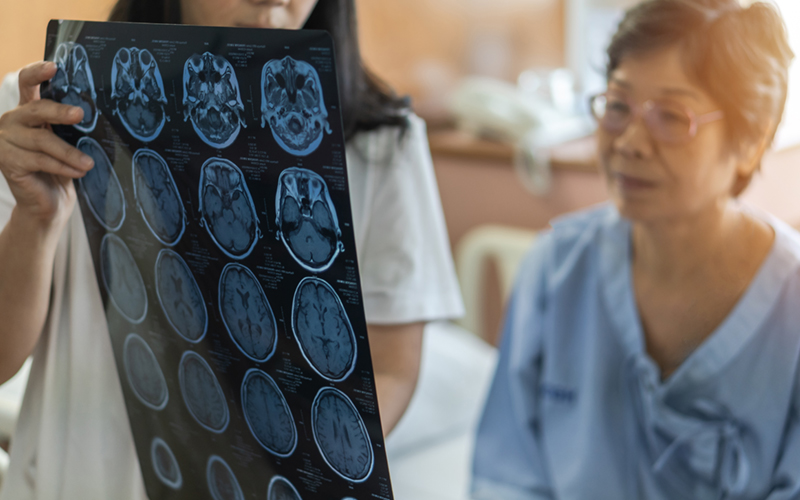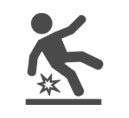Garden Grove Brain Injury Lawyers
- 550+ Google 5-Star Reviews
- $1 Billion won over 15 years
- Won’t settle for low offers, not afraid to fight for max value

Get a Free Case Evaluation
No fees until we win!
All San Diego Case Types

Personal Injury

Brain Injury

Car Accident

Slip & Fall

Truck Accident

Wrongful Death
Garden Grove Brain Injury Lawyers
With pleasant weather, plenty of food and shopping options, a low crime rate, and a focus on diversity and inclusion, Garden Grove is a wonderful place both to visit, as well as to work, live, and raise a family. Unfortunately, the plentiful travel and recreational options in the city sometimes give rise to injury.
and inclusion, Garden Grove is a wonderful place both to visit, as well as to work, live, and raise a family. Unfortunately, the plentiful travel and recreational options in the city sometimes give rise to injury.
One of the most serious and complex injuries an individual can suffer in Garden Grove is a brain injury. This is due not only to the organ’s importance to the body’s overall ability to survive and function, but also due to the brain’s limited ability to heal itself after injury.
The Garden Grove brain injury lawyers from Gomez Trial Attorneys can help you understand your legal options if you have suffered a brain injury that resulted from someone else’s careless or reckless actions.
HOW A GARDEN GROVE BRAIN INJURY LAWYER CAN HELP
If you have suffered a brain injury in Garden Grove as a result of someone else’s reckless or careless actions, you could recover damages related to your injury through a personal injury lawsuit. The Garden Grove brain injury lawyers at Gomez Trial Attorneys have helped many brain-injured clients and their families obtain much-needed compensation through this legal process.
Some of the brain injury case results we have obtained include:
- $16,200,000 settlement for a client who suffered a “mild” brain injury as the result of a slip and fall accident.
- $13,500,000 jury verdict for a client who suffered a brain injury as the result of an auto accident.
- $12,300,000 jury verdict for a client who suffered a “mild” traumatic brain injury.
- $10,800,000 jury verdict for a client who suffered a brain injury as well as a cervical fracture.
We provide important services for our brain injury clients, including:
- Guidance surrounding the legal options available for obtaining compensation.
- A valuation of the case based on the costs, estimated future costs, and impacts associated with this devastating injury.
- Determination of all liable parties and insurance resources that can be accessed for compensation.
- Skilled negotiation in an attempt to obtain a fair settlement offer.
- Litigation, including the delivery of opening and closing statements, the examination of witnesses, and the presentation of evidence.
- Assistance in collecting the settlement or award.
For a free case evaluation with our brain injury lawyers in Garden Grove, contact us right away.
THE MOST COMPLEX INJURIES INVOLVE THE BRAIN
The brain is perhaps the most important organ in the body, as every voluntary and involuntary response is controlled by messages sent to and received by the brain. An acquired brain injury is an injury that is not hereditary, congenital, degenerative, or caused during the birth process. Instead, it is a result of a change in neural activity caused by an internal or external factor.
There are two types of acquired brain injuries:
- Traumatic brain injuries: This type of injury generally results from a sudden or violent blow to the head or body. Some traumatic brain injuries feature an object that has penetrated the thick, bony protection of the skull and has entered the protective tissues surrounding the brain or even the brain itself. This is known as an open injury. The injury can also feature damage to the brain caused by impact within the skull. This is known as a closed injury. The most common causes of a traumatic brain injury include falls, assaults, motor vehicle accidents, sports and recreational activities such as contact sports or diving, abusive head trauma (such as shaken baby syndrome), gunshot wounds, workplace injuries, child abuse or domestic violence, and military actions in combat zones that can include explosive blasts.
- Non-traumatic acquired brain injuries: This type of brain injury causes damage to the brain due to internal factors such as a lack of oxygen or exposure to toxins. Some of the common causes of non-traumatic acquired brain injuries include electric shock, near-drowning, suffocation, exposure to neurotoxins such as lead or carbon monoxide, drug overdose, and some medical conditions including seizures and strokes.
The brain consists of several segments, known as lobes, which each work to control specific functions of the body. No two brain injuries are alike because the deficits acquired from the injury not only depend on the severity of the damage to a specific part of the brain, but even which side of the brain was injured, how quickly complications of the injury are addressed to prevent further damage, and other factors unique to the injured person.
A look at the different parts of the brain and the specific deficits associated with that area include:
- Frontal lobe: As its name suggests, the frontal lobe is located in the front part of the brain in the forehead. The frontal lobe is responsible for such functions as emotional, impulse, and behavioral control; organization; attention; the ability to speak; problem-solving; and judgment. An injury to this portion of the brain results in difficulties with emotional, impulse, and behavioral control, as well as difficulty recalling events or speaking.
- Temporal lobe: Located in the temple-region of the brain, the temporal lobe controls such functions as memory, the ability to understand spoken language, sequencing, organization, and hearing. Damage to this part of the brain results in difficulties with communication and memory.
- Cerebellum: The cerebellum, located just above the brainstem in the base of the skull, is responsible for balance and coordination, visual perception, and skilled motor activity. An injury to the cerebellum can result in loss of coordination or an inability to move or balance.
- Occipital lobe: Located in the back part of the brain, the occipital lobe’s primary function is vision. Individuals suffering an injury to this part of the brain will often lose eyesight or experience difficulty comprehending the size and shape of objects.
- Parietal lobe: Located in the crown of the head, the parietal lobe’s functions involve the primary senses, controlling such functions as depth perception, the sense of touch, and identification of size, shapes, and colors. An injury to this portion of the brain will result in deficits to the primary senses, including sight, sound, taste, touch, and smell.
- Brainstem: Located in the base of the skull, the brainstem controls the body’s involuntary responses, such as heart rate, breathing, consciousness, and sleep/wake cycles. Damage to the brainstem is often life-ending, as the body is unable to survive independently of mechanical assistance if it cannot control these involuntary responses.
The brain has two roughly equal sides—the right side and the left side—that also control some of the body’s traits. An injury to the left side of the brain often produces difficulties with understanding spoken language or speaking, impaired logic, sequencing difficulties, depression, and loss of control of the right side of the body. An injury to the right side of the brain can result in visual memory deficits, altered creativity and music perception, loss of “big picture” type thinking, and loss of control of the left side of the body.
While brain injuries are categorized as mild, moderate, and severe, based on several factors including the individual’s consciousness at the time he or she receives medical treatment, there is nothing “mild” about brain injuries. Even concussions, which are considered a “mild” form of a traumatic brain injury, can result in lifetime impairments, including chronic headaches and loss of memory.
THE COMPLICATIONS ASSOCIATED WITH BRAIN INJURIES
In addition to the often permanent deficits related to this type of injury, complications from the injury commonly arise. Much of the early treatment of an acquired brain injury consists of limiting those complications and the potential for additional brain damage that they pose.
Common complications of a brain injury include:
- Altered consciousness: Moderate or severe brain injuries can result in an altered state of consciousness. Some common consciousness disorders that result from a brain injury include a coma, which is a loss of consciousness for at least 24 hours; a vegetative state, which is an extended state of coma in which a person is unaware of his or her surroundings but can sometimes open his or her eyes or move; minimally conscious state, which often is the transition between coma and consciousness and exists when a brain-injured person has limited but detectable awareness of self and his or her surroundings; and brain death, when all activity of the brain (including the brainstem) has ceased.
- Hydrocephalus: Also known as a buildup of cerebrospinal fluid on the brain, hydrocephalus can cause secondary damage to the brain as a result of increased pressure. This condition is often treated surgically with the placement of a shunt that drains the fluid away from the brain to other parts of the body.
- Seizures: Seizures are a common feature of a brain injury, typically occurring shortly after the onset of the injury. Anti-seizure medication is often administered in the early hours of treatment to avoid this complication. Recurrent seizures—known as post-traumatic epilepsy—can occur months or even years after the injury took place.
- Damaged blood vessels: Injuries that cause damage to the brain can also cause damage to the vessels that supply blood to the brain, increasing the injured person’s risk of potentially deadly strokes and blood clots.
- DVT: Deep vein thrombosis, known as DVT, is a form of blood clots that can occur in the deep veins of the legs following brain injury, periods of immobility, and surgery. The most dangerous risk of this condition is that a piece of the clot will break free and travel through the bloodstream to the lungs, creating a potentially fatal condition known as a pulmonary embolism.
THE COSTS AND IMPACTS OF LIVING WITH A BRAIN INJURY IN GARDEN GROVE
 Brain injuries can impact all facets of a person’s life. The lifetime expected cost of medical treatment alone with this type of injury is generally $85,000 to $3 million, which places many households with a brain-injured family member in deep financial distress. Added to the high price tag is the inability of many brain injured adults to return to the workplace.
Brain injuries can impact all facets of a person’s life. The lifetime expected cost of medical treatment alone with this type of injury is generally $85,000 to $3 million, which places many households with a brain-injured family member in deep financial distress. Added to the high price tag is the inability of many brain injured adults to return to the workplace.
Perhaps the greatest testimony to the extraordinary financial impact of this type of injury is the reality that an estimated 53 percent of the homeless population in the U.S. is living with deficits created by brain injury. For some homeless people, the injury is a result of the often dangerous living conditions that homelessness imposes. However, for many others, the injury itself is a catalyst for homelessness.
In addition to financial impacts, brain injuries can cause other issues, including:
- At work: Those who return to work often need accommodations made to work effectively with their injury. Those accommodations can include shorter workdays, a lighter workload, and longer breaks.
- At school: Contrary to popular belief, children’s brains do not respond to injury any better than adult brains do. And because their brains are still developing, the true impact of a brain injury for a child may not be realized for several years, as the societal and educational expectations increase. Children who return to school with a brain injury can also require accommodations to assist with the extreme behavioral and organizational deficits they have as well as difficulties with fatigue, concentration, and completing projects.
- At home: It is not unusual for the family of a brain injured individual to say that they feel as though no one understands what they go through. The children of a person with a brain injury can find themselves acting as caretakers. The brain-injured individual’s spouse often suffers a loss of physical intimacy and companionship. The family can feel isolated as deficits and impulse control issues from the injury prevent them from participating in events and activities that were previously enjoyed.
FREQUENTLY ASKED QUESTIONS ABOUT GARDEN GROVE BRAIN INJURIES
 If you or your loved one has suffered a brain injury in Garden Grove, you likely have questions about your ability to recover damages related to your injury. Here are some of the questions our Garden Grove clients most frequently ask about brain injuries lawsuits in California. For additional information, contact the attorneys at Gomez Trial Attorneys today.
If you or your loved one has suffered a brain injury in Garden Grove, you likely have questions about your ability to recover damages related to your injury. Here are some of the questions our Garden Grove clients most frequently ask about brain injuries lawsuits in California. For additional information, contact the attorneys at Gomez Trial Attorneys today.
HOW DO I PROVE THAT SOMEONE ELSE WAS LIABLE FOR MY GARDEN GROVE BRAIN INJURY?
You lawyer can establish liability by proving the following elements in your case:
- The at-fault party owed you a duty of care. The duty of care that was owed depends on the type of accident that resulted in your injury and the at-fault party’s role in it. For example, in a case involving an individual who suffered a brain injury as the result of a car accident that was caused by another driver, the at-fault driver’s duty of care would be to operate his or her motor vehicle safely and legally. In a slip and fall case in which an individual suffered a brain injury as the result of a dangerous property feature or condition, the duty of care owed by the property owner would be to ensure that his or her property was free of dangerous conditions that could cause injury to visitors.
- There was a breach in this duty of care. The breach refers to the actions that the defendant took that were contrary to the duty of care that was owed. In a car accident case, the breach could involve aggressive driving, distracted driving, alcohol impairment, or another risky driving behavior that is contrary to the duty to operate the vehicle safely and legally. In a slip and fall case, the breach could be failing to repair a property defect or to warn the visitor of the existence of this defect.
- The breach resulted in the accident, which caused the plaintiff’s injury and subsequent expenses and impacts on the plaintiff’s life.
WHAT DAMAGES ARE AVAILABLE TO ME THROUGH A GARDEN GROVE BRAIN INJURY LAWSUIT?
California law allows claimants in brain injury cases to seek both economic and non-economic damages, and in some cases punitive damages.
Economic damages include out-of-pocket expenses such as:
- Medical treatment, including treatment provided at the scene or in the emergency department; transport to the hospital by ambulance or air; diagnostic testing; hospitalization; physician and surgical services; prescription medication; physical therapy and rehabilitation.
- Loss of wages due to being unable to work as a result of the injury, as well as being required to miss work to attend injury-related medical appointments.
- Loss of future earning capacity, if the deficits acquired through the injury result in the individual no longer being able to work.
- The cost of repairing or replacing property damaged in the accident, such as the car the claimant was driving in a car accident case.
- The cost of hiring someone to perform personal or household services for tasks that the injury renders the individual no longer able to perform.
Non-economic damages refer to the impacts that the injury has on the lives of the individual and/or his or her family members.
Some examples of non-economic damages that you could claim in a Garden Grove brain injury case include:
- Physical pain and suffering.
- Emotional distress.
- Inconvenience.
- Loss of society and companionship.
- Loss of consortium, a damage claimed on behalf of the injured person’s spouse for loss of physical intimacy that is often a result of hormonal changes following a brain injury.
- Loss of the enjoyment of life, which is a damage that refers to the inability to participate in hobbies and activities that the person previously enjoyed.
In some cases, courts can award punitive damages in brain injury cases. These damages are unrelated to the expenses and impacts personally suffered by the claimant, but the court orders them to punish the defendant for particularly egregious behavior.
When considering the applicability of punitive damages in a brain injury case, a jury must weigh:
- The reprehensibility of the defendant’s conduct.
- The physical harm that was suffered by the plaintiff and the amount of compensatory damages being awarded for that harm.
- The financial condition of the defendant.
HOW WILL MY ATTORNEY KNOW HOW MUCH MY GARDEN GROVE BRAIN INJURY CASE IS WORTH?
One of the services that your Garden Grove brain injury lawyers would provide for you is an initial determination of your case’s value. This is the amount of damages you will seek.
The valuation of your case is determined through:
- Your economic damages, as proven by receipts, bills, pay stubs, and other documentation of your expenses, are added up.
- The more severe your injuries, the higher the multiplier that is used. This new sum is the total amount of your non-economic damages.
- Economic and non-economic damages are added together to achieve a total case value.
HOW LONG DO I HAVE TO FILE A GARDEN GROVE BRAIN INJURY LAWSUIT?
The statute of limitations is the amount of time a person has to file a legal claim after damages have been incurred. In California, the statute of limitations for brain injury cases is two years from the date of the accident that caused the individual’s injury. If the injury is not immediately detected or discovered within a time frame that will allow the claim to be filed within two years after the injury occurred, the deadline for filing the claim is within one year of the discovery of the injury.
In some cases, the court will find other justifications for extending the time limit for filing a claim. Your attorney would advise you if there is an extension available in your case. Contact the attorneys at Gomez Trial Attorneys for help.
WHAT IS THE AVERAGE SETTLEMENT IN A GARDEN GROVE BRAIN INJURY CLAIM?

Because settlements are reached depending on the unique factors and damages experienced in each case, there is no average.
There are, however, several factors that could affect the amount you may receive, including:
- The amount of insurance the at-fault party has. Insurance is an important part of the equation, as the vast majority of settlements and awards are paid for through insurance policies. While it is possible to sue an uninsured individual or entity and even to obtain a judgment on your behalf, it is nearly impossible to collect damages in the case as most people do not have the money to pay for accident damages out-of-pocket.
- Your age and overall health at the time of the accident. Age is a factor in determining several of the damage categories in your case, including lost wages and loss of future earning capacity. A person in the middle of his or her career would likely garner more damages in these categories than a young person, who has not had time to move up the pay scale, or a retired person who is no longer earning an income. Pre-existing conditions can negatively impact the amount you are eligible to collect, as the defendant’s insurance carrier will often claim that the physical pain you are experiencing is not a result of the accident caused by their insured, but rather as a result of those pre-existing conditions.
- Your level of patience. The only thing insurance companies like less than paying out settlements for injuries caused by their insured is paying for litigation in cases involving their insured while facing the uncertainty as to whether they can win the case. For this reason, the vast majority of Garden Grove brain injury cases will resolve through the settlement process, outside of the courtroom. However, because an at-fault party can offer a settlement at any time before the jury has rendered a verdict, the highest settlement offers may not come until that point.
IS IT POSSIBLE TO FILE A GARDEN GROVE BRAIN INJURY CLAIM FOR A CONCUSSION?
Yes. Even so-called “minor” traumatic brain injuries, such as concussions, can result in a lifetime of expenses and impacts, including memory loss and chronic pain. If you have suffered a “mild” injury that has resulted in expenses and impacts, talk to us about your legal options to recover damages.
MY BRAIN INJURY OCCURRED IN THE WORKPLACE. SHOULD I SUE MY EMPLOYER?
Most of the time, workers’ compensation insurance would compensate you for brain injuries occurring in the workplace. This provides medical treatment, lost wages, and permanent disability payments to workers who have suffered an injury or illness through their occupation. Because compensation is provided through this insurance policy regardless of who was at fault for the injury, there are few reasons why a lawsuit against the employer would be necessary.
There are, however, some exceptions, including the failure of the employer to provide workers’ compensation insurance for his or her employees despite the legal requirement. Additionally, if a third party—someone other than a co-worker or employer—caused your injury, that party may bear liability, such as a person who drives for work and is injured by someone unrelated to the driver’s employment.
ARE BRAIN INJURY SETTLEMENTS TAXABLE?
According to the Internal Revenue Service, brain injury settlements are not considered income and are, therefore, not taxable. The exception to this is if punitive damages are awarded. Because these damages are not related to the actual injury or expenses caused by the injury, this portion of the settlement would be subject to tax. Additionally, if an individual claims his or her medical expenses as a tax credit and subsequently receives a judgment, the claimed amount may need to be counted as income the following year.
I CANNOT AFFORD AN ATTORNEY FOR MY BRAIN INJURY CASE. WHAT SHOULD I DO?
Many people hesitate to contact an attorney after suffering a brain injury, as they are afraid they cannot afford one.
However, our Garden Grove brain injury attorneys offer these two special services to anyone who needs them:
- Free case evaluations: Also known as free consultations, the case evaluation allows potential clients to discuss their case with attorneys to get their legal questions answered and to obtain guidance as to what their options are. This is also a time for the potential client to evaluate an attorney and determine if they wish to hire that attorney to represent them.
- Contingency fee: The contingent fee is a payment scheme often employed by Garden Grove brain injury attorneys in which the client is not billed for attorney services until there is a successful outcome to the case.
CALL OUR GARDEN GROVE BRAIN INJURY ATTORNEYS NOW

Brain Injury Attorney, John Gomez
Brain injury cases are extraordinarily complex due to the high cost of treatment and the likelihood of permanent disabilities resulting from the injury. It can be crucial to have an attorney to assist you that is not only experienced in the legal process of recovering brain injury damages in Garden Grove, but also has experience in brain injury cases and the act of proving injuries, expenses, and expected expenses.
California law grants you the right to recover damages related to both the profound expenses and life impacts this type of injury causes. Let the Garden Grove brain injury lawyers help you understand the legal options that are available to you in your case. Contact us online or by calling 833-GET GOMEZ (833-438-4663) for your free case evaluation today.
INJURED IN AN ACCIDENT? GET A REAL TRIAL LAWYER. GET GOMEZ.
Our Process... Easy as 1. 2. 3!
Call Us
We will determine your case and submit
We get to work
You will get regular update from us
Win
Collect your compensation

550+ 5 Star Reviews
-
“John helped me find doctors, he referred me to his neurologist, his physical therapist, I mean, anything I needed he was right there, every step of the way. I couldn’t have asked for a better result from all of this, I would absolutely recommend Gomez Trial Attorneys.”
-
“During the time I was working with Gomez Trial Attorneys, they treated me very, very well. 100% of the time, they believed me, and they were very compassionate. They felt sorry for what happened and they understood the therapy process.”
-
“They held my hand the whole time and kept me in the loop every aspect of my case which was very refreshing to me. They helped me get my settlement offer as fast as possible and I was able to keep my farm”
-
“The Gomez experience was the best experience it could be for me really, only positive things to say. They really were there every step if the way. Thanks to Gomez Trial Attorneys my dad is able to support my family as a single father”
-
“He opened the door for me to join his firm to help other brain Injury survivors and I never met another firm who is like this who was so understanding and caring who took the extra step and walked the extra mile with their clients and this is the best”
-
“I am very satisfied with the outcome with Gomez and I would definitely recommend Gomez to anybody, we tell people all the time, Get Gomez! They are really thorough with everything and they make you feel real comfortable.”
-
“Just helped us through, guided us through, I kept notes all those years, we had questions all the time and they would always keep us informed of what was going on. They just unlayered it, layer by layer, I’ve never seen anything like them. Thank God for them.”

